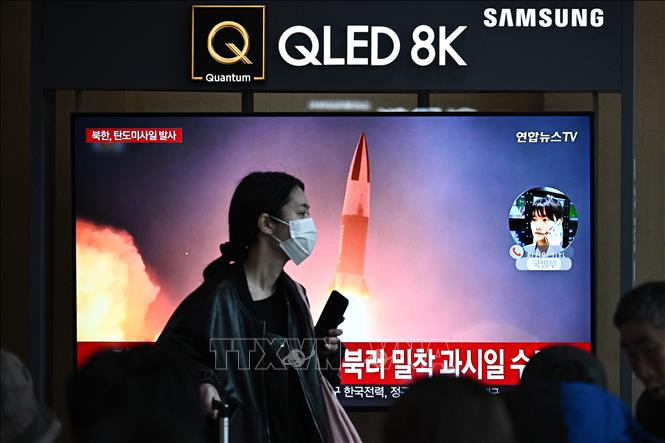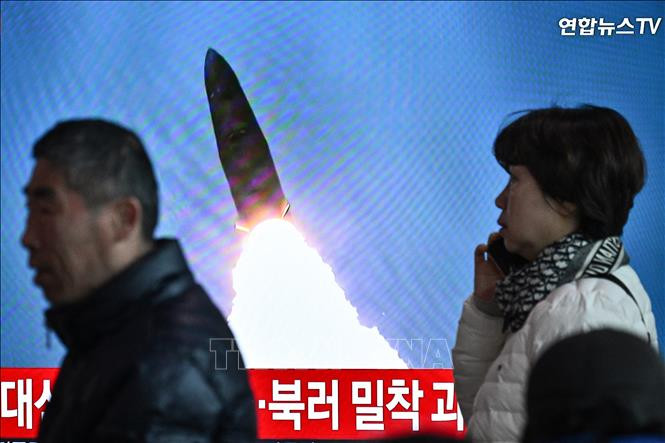On March 18, the US criticized North Korea's latest missile launches and called on Pyongyang to engage in dialogue.

According to Yonhap news agency, in the statement, the US State Department spokesperson stressed that these launches violate United Nations Security Council (UNSC) resolutions and undermine regional security. The statement reaffirmed the US commitment to defend its allies South Korea and Japan, and urged North Korea to return to the negotiating table.
On the same day, Japanese Prime Minister Fumio Kishida on March 18 voiced his opposition to North Korea's ballistic missile launches, considering them a violation of UN Security Council resolutions. Prime Minister Kishida also said that there have been no reports of damage to Japanese ships and aircraft following North Korea's missile launches.
Earlier, the South Korean Joint Chiefs of Staff (JCS) said Pyongyang may have launched multiple short-range ballistic missiles from North Hwanghae Province. The missiles flew about 300 km before falling into the East Sea of the Korean Peninsula.
Meanwhile, according to sources from the Japanese Government and Ministry of Defense, North Korea fired three ballistic missiles in succession, all of which fell off the coast of Japan's exclusive economic zone (EEZ).
North Korea's most recent launch was on January 14 and the object launched was an intermediate-range ballistic missile.

The latest launch was carried out by North Korea in the context of US Secretary of State Antony Blinken's visit to South Korea on March 17 to attend a conference at the invitation of host country President Yoon Suk Yeol.
The situation on the Korean peninsula has recently become tense due to military actions by all sides. On March 15, North Korea conducted air combat training, right after the US and South Korea concluded their annual joint military exercise called Freedom Shield, despite Pyongyang's objections.